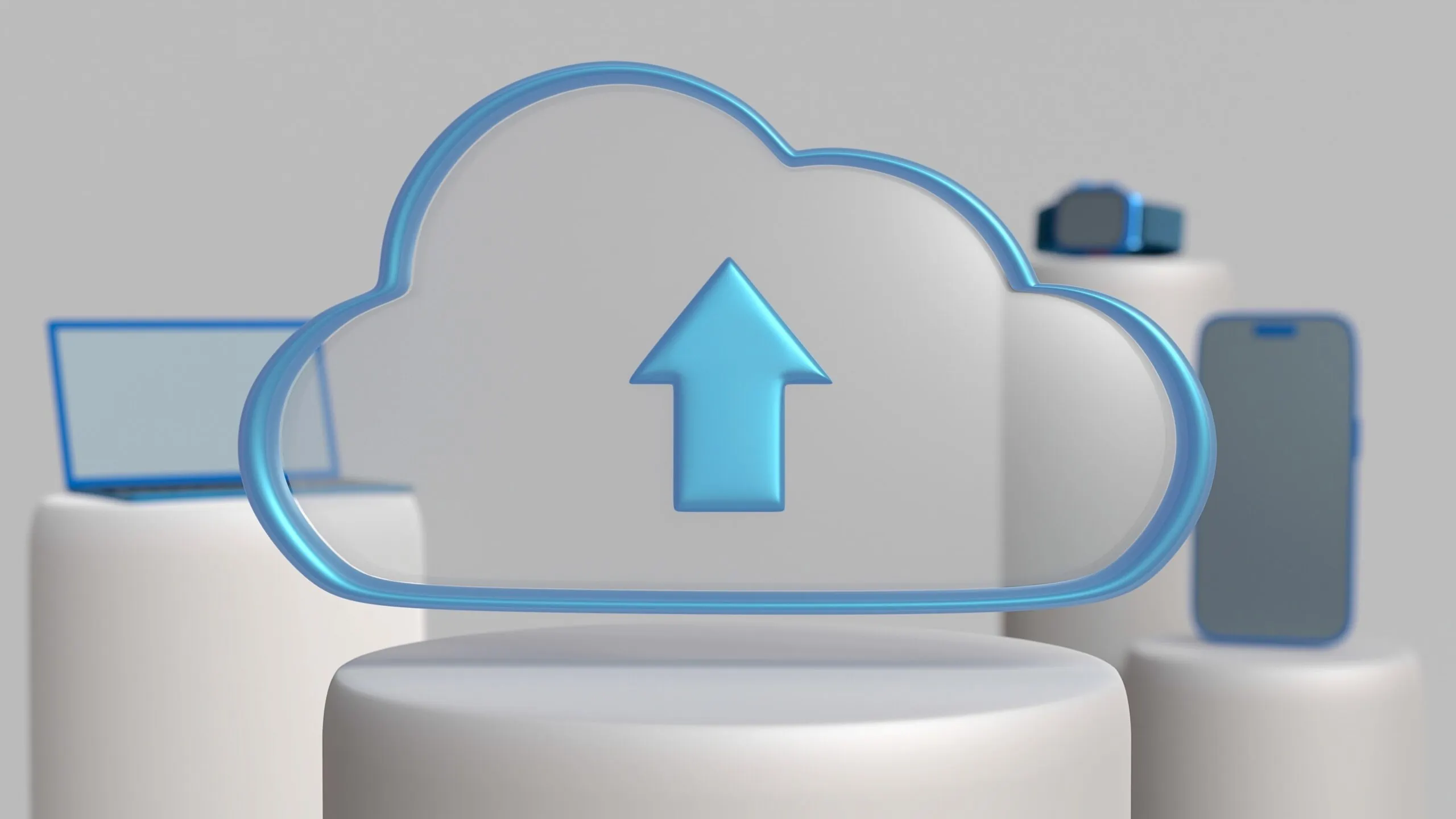Introduction: How to Secure Sensitive Data in Cloud Environments
How to Secure Sensitive Data in Cloud Environments? Cloud computing is becoming increasingly popular for businesses of all sizes. It offers a range of benefits, such as cost savings, scalability, and flexibility. However, it also presents a unique set of security challenges. To ensure the security of sensitive data in cloud environments, organizations must take the necessary steps to protect their data.
In this blog, we will discuss the best practices for securing sensitive data in cloud environments. We will cover topics such as encryption, access control, and data backup. By following these best practices, organizations can ensure that their sensitive data is secure in the cloud.

Securing Sensitive Data in the Cloud: A Comprehensive Guide
Cloud computing is becoming increasingly popular for businesses of all sizes, but it’s important to ensure that sensitive data is secure. This comprehensive guide will help you understand the best practices for securing sensitive data in the cloud. First, you should ensure that all data is encrypted. Encryption is the process of transforming data into a code that can only be read by authorized users. This helps protect data from unauthorized access. Additionally, you should use two-factor authentication to protect access to the cloud. This requires users to provide two pieces of information, such as a password and a code sent to their phone, to gain access. Finally, you should use a cloud access security broker (CASB) to monitor and control access to the cloud. A CASB can help you detect and prevent unauthorized access to your cloud data. By following these steps, you can ensure that your sensitive data is secure in the cloud.

The Benefits of Securing Sensitive Data in Cloud Environments
Securing sensitive data in cloud environments can be beneficial for businesses of all sizes. By using cloud-based solutions, companies can reduce their IT costs and increase their data security. Cloud-based solutions provide a secure environment for storing and managing data, as well as providing access to the data from any location. Additionally, cloud-based solutions can help businesses protect their data from cyber threats, such as malware and ransomware. Furthermore, cloud-based solutions can help businesses reduce their risk of data breaches, as they can be configured to provide access to only authorized users.
Cloud-based solutions also offer businesses the ability to scale their data storage and computing needs as their business grows. This allows businesses to quickly and easily increase their data storage and computing capacity without having to invest in additional hardware or software. Additionally, cloud-based solutions can provide businesses with the ability to access their data from any location, allowing them to work remotely and collaborate with colleagues from around the world. By securing sensitive data in cloud environments, businesses can benefit from increased data security, reduced IT costs, and improved collaboration.

The Benefits of Encryption for Securing Sensitive Data in the Cloud
Encryption is a powerful tool for protecting sensitive data in the cloud. It helps to ensure that only authorized users can access the data, and that the data is kept secure from malicious actors. Encryption also helps to prevent data breaches, as it makes it much harder for hackers to access the data. Additionally, encryption can help to ensure that data is not lost or corrupted, as it is stored in an encrypted format. By using encryption, organizations can ensure that their sensitive data is kept safe and secure in the cloud.
Encryption also provides an extra layer of security for cloud-based applications. By encrypting data before it is sent to the cloud, organizations can ensure that the data is kept secure while in transit. Additionally, encryption can help to protect data from being accessed by unauthorized users, as the data is encrypted and can only be decrypted by authorized users. This helps to ensure that only authorized users can access the data, and that the data is kept secure from malicious actors. Encryption is an essential tool for securing sensitive data in the cloud.

The Risks of Not Securing Sensitive Data in the Cloud
When storing sensitive data in the cloud, it is important to secure it properly. If not, there are a number of risks that can arise. For example, if the data is not encrypted, it can be accessed by unauthorized users. Additionally, if the data is not backed up, it can be lost if the cloud service provider experiences an outage. Furthermore, if the data is not regularly monitored, malicious actors may be able to access it without detection.
To mitigate these risks, organizations should ensure that their cloud data is encrypted, backed up, and monitored. Encryption ensures that only authorized users can access the data. Backing up the data ensures that it can be recovered in the event of an outage. Finally, monitoring the data helps to detect any malicious activity. By taking these steps, organizations can ensure that their sensitive data is secure in the cloud.

The Benefits of Multi-Factor Authentication for Securing Sensitive Data in the Cloud
Multi-factor authentication (MFA) is a security measure that requires users to provide two or more pieces of evidence to verify their identity. This is especially important when it comes to securing sensitive data in the cloud. By using MFA, organizations can ensure that only authorized users have access to their data. Additionally, MFA can help protect against malicious actors who may try to gain access to sensitive data.
MFA also provides an extra layer of security by requiring users to provide multiple pieces of evidence. For example, a user may be required to provide a password, a one-time code sent to their phone, or a biometric scan. This makes it much harder for malicious actors to gain access to sensitive data, as they would need to have multiple pieces of evidence to do so. Furthermore, MFA can help organizations detect suspicious activity, as it can alert them when an unauthorized user attempts to access their data. This can help organizations take the necessary steps to protect their data.

The Benefits of Auditing for Securing Sensitive Data in the Cloud
Auditing is an important step in securing sensitive data in the cloud. It helps to identify any potential security risks and provides a way to monitor the security of the data. Auditing also helps to ensure that the data is being stored securely and that any changes to the data are tracked. By auditing, organizations can be sure that their data is safe and secure.
Auditing also helps to ensure that the data is being used in a secure manner. It can help to detect any unauthorized access to the data and can help to identify any potential security vulnerabilities. Additionally, auditing can help to ensure that the data is being used in accordance with the organization’s policies and procedures. This helps to ensure that the data is being used in a secure and responsible manner. Auditing is an important step in securing sensitive data in the cloud and can help to protect the data from unauthorized access.

Best Practices for Securing Sensitive Data in the Cloud
It is important to take the necessary steps to ensure sensitive data is secure when stored in the cloud. To do this, cloud users should follow best practices for cloud security. These best practices include encrypting data, using strong passwords, and limiting access to only those who need it. Additionally, cloud users should use two-factor authentication and regularly monitor their cloud environment for any suspicious activity.
Cloud users should also use a cloud access security broker (CASB) to monitor and control access to cloud applications. A CASB can help protect data by providing visibility into cloud usage, enforcing security policies, and detecting threats. Additionally, cloud users should use a secure file transfer protocol (SFTP) to transfer data securely. SFTP encrypts data in transit, ensuring that only authorized users can access the data. By following these best practices, cloud users can ensure their sensitive data is secure.

The Role of Access Control in Securing Sensitive Data in the Cloud
Access control is an important part of keeping sensitive data secure in the cloud. Access control is a set of rules that determine who can access certain data and what they can do with it. Access control can be used to limit who can view, edit, or delete data. It can also be used to restrict who can access certain areas of the cloud. By using access control, organizations can ensure that only authorized users can access sensitive data. For example, access control can be used to limit who can view, edit, or delete data. In addition, access control can be used to restrict who can access certain areas of the cloud. Access control is an important tool for securing sensitive data in the cloud and can help organizations protect their data from unauthorized access.

Conclusion: How to Secure Sensitive Data in Cloud Environments
How to Secure Sensitive Data in Cloud Environments? Securing sensitive data in cloud environments is a complex process that requires a comprehensive approach. It is important to understand the risks associated with cloud computing and to take steps to mitigate those risks. This includes using encryption, access control, and other security measures to protect data. Additionally, organizations should ensure that their cloud providers are compliant with industry standards and have the necessary security measures in place. By taking these steps, organizations can ensure that their sensitive data is secure in the cloud.
Organizations should also stay up to date on the latest security trends and technologies to ensure that their data is protected. By taking a proactive approach to security, organizations can ensure that their sensitive data is secure in the cloud.






